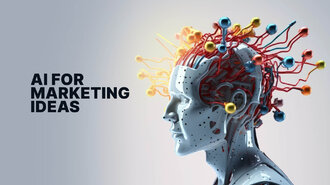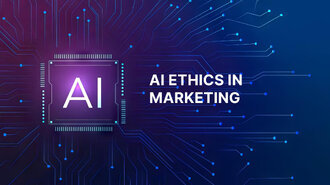Machine learning has truly transformed the tech world, ushering in remarkable progress.
Its immense versatility has led to its rapid adoption across various industries within the economy, encompassing sectors like the market and education, processing vast amounts of information. These include education, healthcare, defence, and, of course, marketing.
AI is a game changer with its closer integration into both AI and digital marketing. Although it has both traditional and digital marketing applications, AI-generated CRM (Customer Relationship Management) enhances areas like these.

This guide dives into how AI boosts digital marketing’s effectiveness, especially in social media, highlighting its strengths and hurdles.
Understanding What Is Artificial Intelligence
Search engine optimisation (SEO) plays a vital role in digital marketing, and AI, a branch of computer science, focuses on developing machines and tools that mimic human behaviour. This means it revolves around technologies that allow machines to perform tasks usually undertaken by humans.
AI-powered machines have a distinguishing characteristic that sets them apart from other technologies—they continuously improve themselves based on new information, enabling marketing professionals to enhance their strategies and foster creativity in tactics.
Such machines can interact identically with humans and are generally used for highly specialised tasks.
Want to receive updates? Sign up to our newsletter
Each time a new blog is posted, you’ll receive a notification, it’s really that simple.
AI finds application in various areas today, such as natural language processing, problem-solving, visual and speech recognition, and automation, all of which involve collecting large amounts of data regarding valuable insights. There are quite a few reasons why AI has become so popular in recent years, such as:
1. High Precision
AI-powered machines exhibit greater precision and higher conversion rates, such as more clicks, than humans when executing tasks, including creating and optimising social media ads. This ensures greater reliability, increased efficiency, and lower costs.
2. Relevant Insights
AI-powered machines excel at efficiently analysing vast data points, surpassing human capabilities. Thus, they streamline a variety of marketing tasks and decision-making processes.
This helps provide beneficial insights and allows businesses access to enhance decision-making.
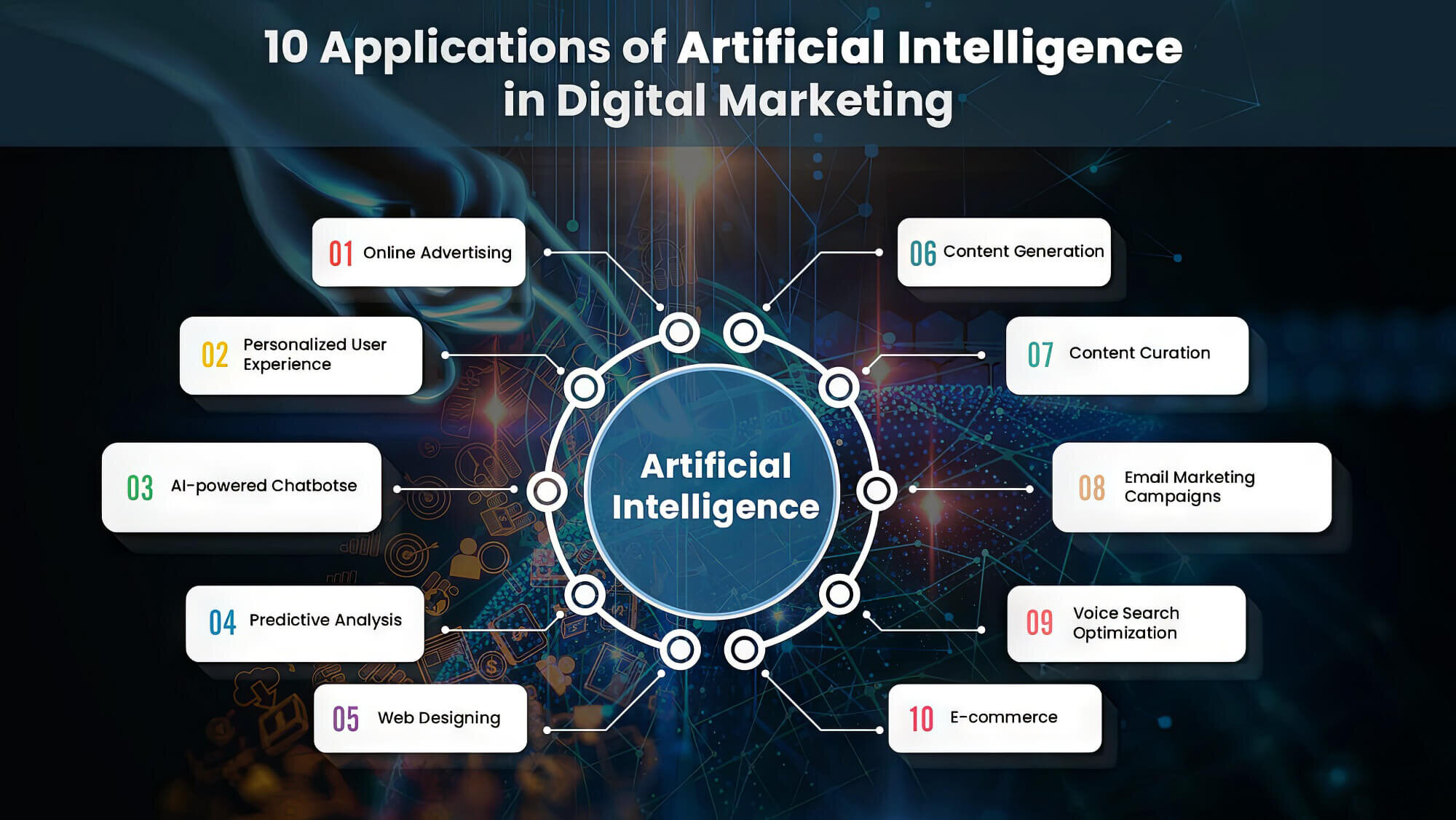
3. Improved Performance
Google Ads, a leading platform for AI in digital advertising, leverages AI to optimise campaign performance using advanced algorithms and historical data.
So, AI-powered devices and gadgets, such as virtual assistants, tracking devices, and AI-powered home security systems, leverage dynamic content to answer customer questions and deliver better performance than regular ones.
4. Adaptability
Machine learning empowers AI machines to adapt and improve based on new data, making it an invaluable tool for content writing and creation. This is one of the factors that make this technology powerful in today’s digital age.
Marketing professionals work in fields witnessing the highest integration of AI technologies and are most affected by it.
The evolution of AI is significantly transforming online marketing, including website designing, for the better.
How Is AI Changing Digital Marketing?
You may already have encountered instances where AI is used to enhance digital marketing. Popular tools like tailored suggestions from Amazon and voice search from Google both use AI technology to understand users.
It is useful in this field because it allows one to better and more quickly understand and analyse different types of data and information.
Additionally, AI can be used to predict and respond to marketing trends, helping a business adapt its strategies more quickly. This results in greater efficiency through comprehensive data analysis and helps save time and resources.
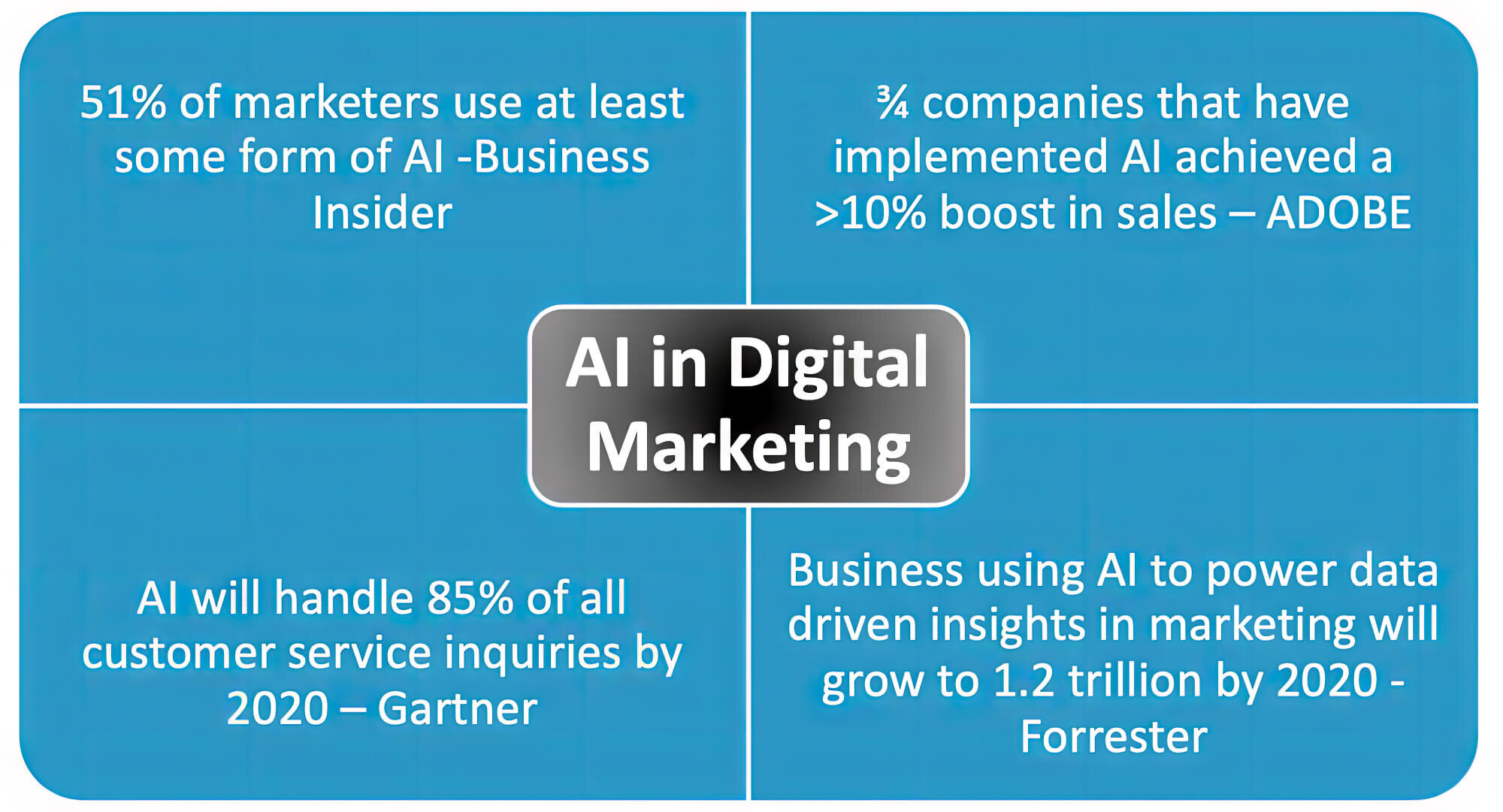
Businesses can use AI to improve their marketing strategy in two ways. The first is to use predictive analytics and artificial Intelligence on the backend for tasks like creating customer profiles using customer segmentation data, programmatic purchasing, and forecasting the demand for various products.
Another way AI is being used is on the customer-facing end, where digital marketers can use AI to improve customer service satisfaction. Effectively using user data can help strengthen the brand reputation and lead to enhanced customer support relations.
Benefits Of Using AI For Digital Marketing
1. Helping A Business Better Understand Its Audience
With the help of artificial Intelligence, it is possible to analyse consumer data related to the target customers. This can be very useful in predicting how customers will make decisions regarding products and services, helping devise effective marketing campaigns.
Such targeted social media campaigns can help a business analyse customer behaviour, reach and interact with its customers more effectively, and increase customer satisfaction.
With AI technology, lead conversion becomes easier since a business can deliver the right experience at the right time to its potential customers, which also improves customer satisfaction. Thus, marketing efforts are boosted, and businesses gain by seeing their sales increase.
2. Enhanced Productivity
AI can help automate marketing tasks and routine activities, allowing employees to focus on creative work and free up valuable time. It can also help them predict market changes and adopt a more strategic approach to critical activities.
Additionally, other resources can be freed up since AI-powered machines can perform jobs much more efficiently, conserving resources that could be used elsewhere.
One perk is that digital marketers can concentrate on crafting top-notch strategies without getting bogged down by tedious tasks.
This results in a higher level of productivity, provides more time to read, and prevents waste of time and resources. Thus, the day-to-day operations of business development are performed more quickly and efficiently.
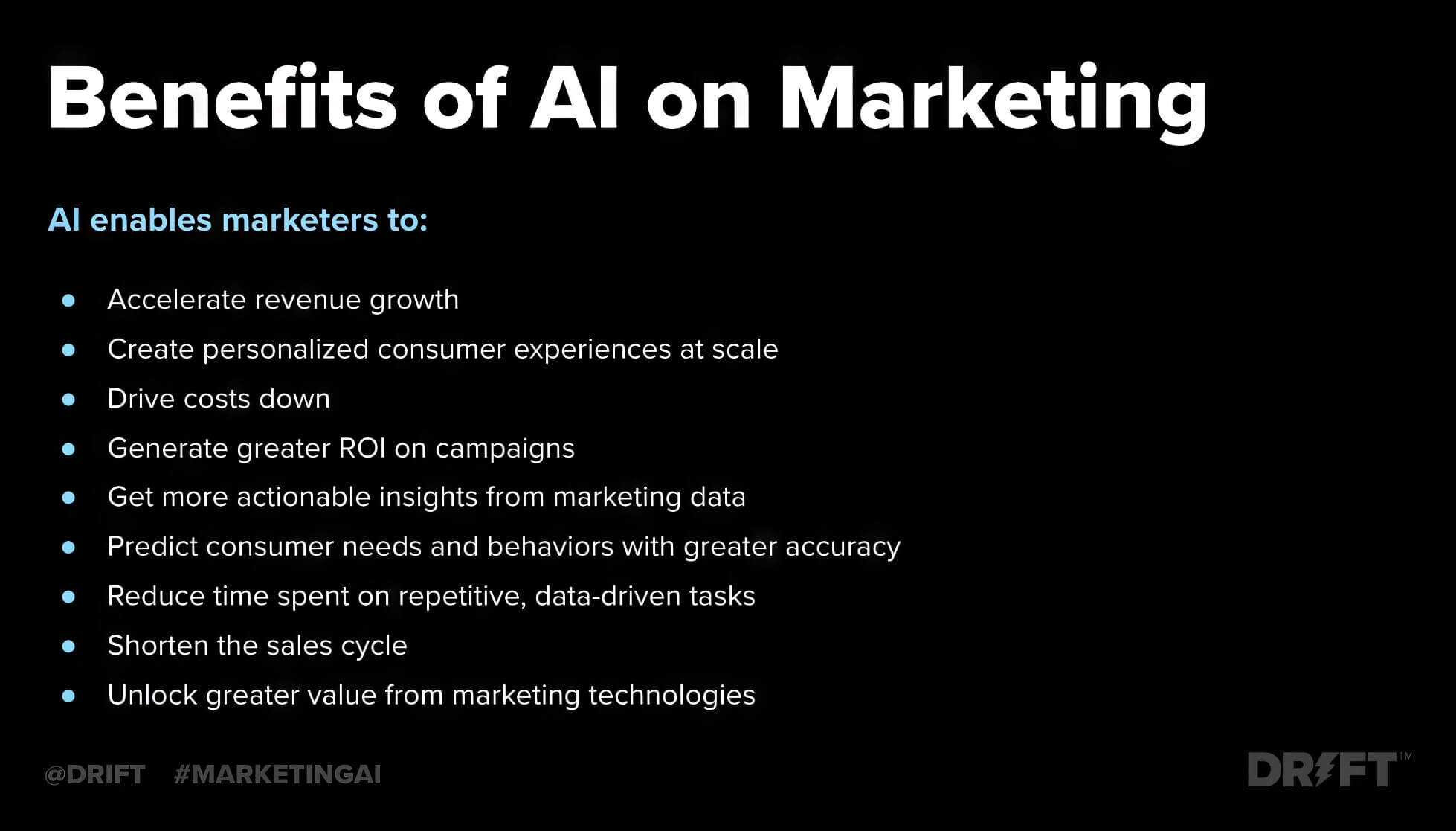
3. More Effective Marketing
A good strategy requires making decisions based on digital marketing AI and different types of data using generative AI.
Marketers must make certain assumptions regarding customers’ tastes, preferences and buying habits while working to stay on top of current trends without accurate data.
However, using AI in digital marketing helps eliminate the need for assumptions since the required data is readily available and properly analysed.
AI driven digital marketing can help marketers devise campaigns that are more accurate and can target prospective customers more effectively by implementing AI in your digital strategy. In many cases, such campaigns have a higher chance of resulting in profits for the business in a matter of days.
4. Higher ROI
Another benefit of AI in marketing is that it can help you enjoy higher investment returns. This is possible since marketers have more readily available information regarding customers’ needs.
Marketers can leverage their knowledge and focus more on content creation, ensuring higher-quality content attracts and convinces customers more effectively.
With a better understanding of its customers and clients, a business can invest in areas bound to deliver results. Its marketing teams can use targeted marketing campaigns to ensure a higher ROI.
AI In Digital Marketing — Case Studies
1. Vanguard Uses AI To Increase Conversion Rates
Vanguard, a leading name among investment firms, was looking to grow its business, but this took time as the investment industry is very strictly regulated regarding advertising. The business needed a way to elevate its presence from the competition while using similar advertisement strategies.
To do that, Vanguard utilised Persado, an AI language platform that could help create personalised ads for the target audience using consumer data. This helped the business to increase its conversion rates by 15%.
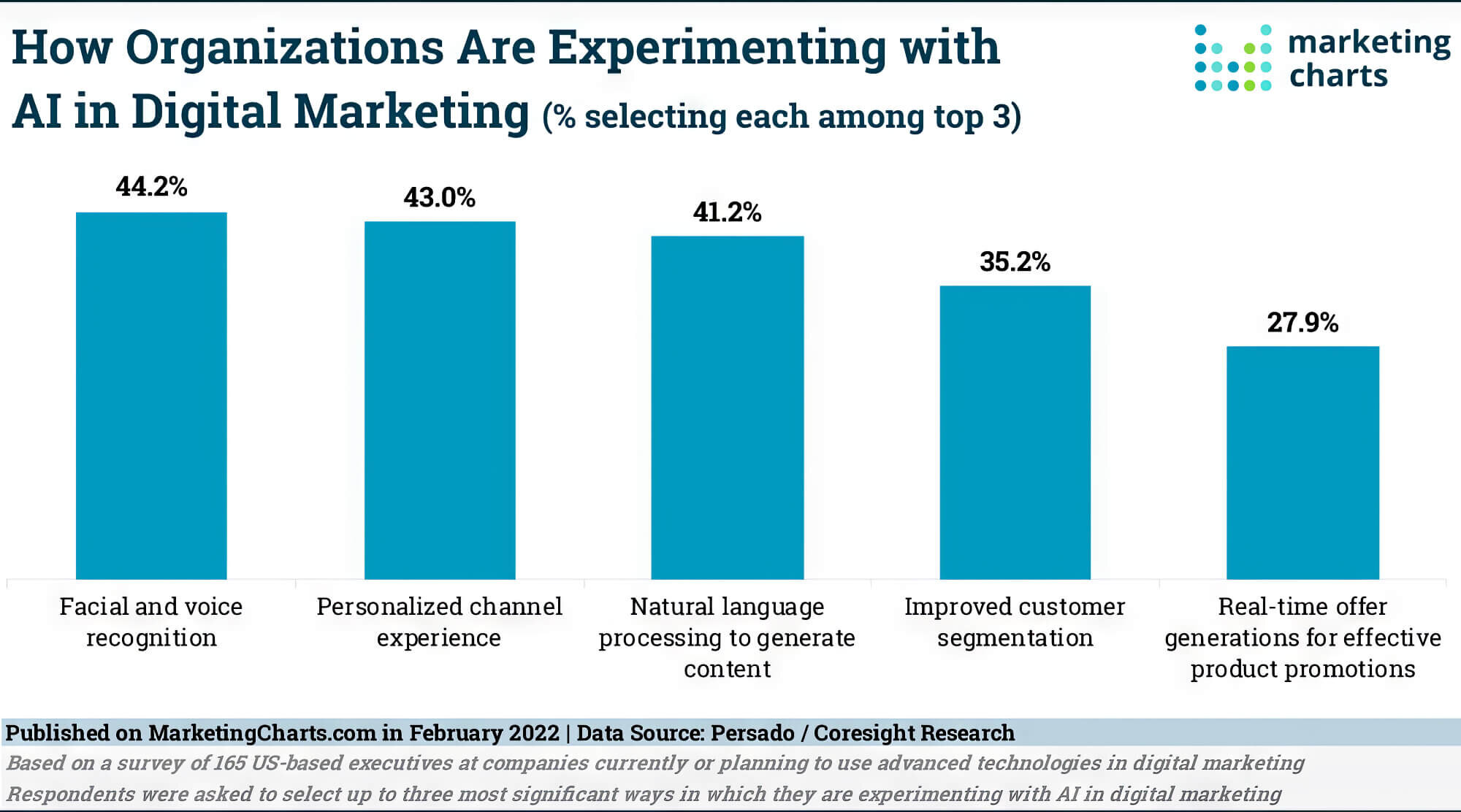
2. Tomorrow Sleep Increases Web Traffic Using AI
Tomorrow Sleep, a startup offering innovative sleep products, could not increase the number of website visitors even after publishing high-quality generated content and using the best tracking and analysis tools. The average number of visitors to the website was around thousands per month.
However, competing with other firms in the same space and generating content to increase the number of website visitors were crucial. That’s where artificial Intelligence came in handy. Tomorrow Sleep started using MarketMuse, an AI tool for creating and optimising content on topics prospective customers found interesting.
It also used the analytics tool offered by MarketMuse to track the ranking of competitors for such topics, which helped identify potential opportunities. This resulted in a lot of increase in the number of website visitors (400,000 per month). Additionally, it allowed the business to rank for multiple positions for a single search result.
AI And Marketing Automation Software
Understanding Marketing Automation
One of the most common ways AI is used in digital marketing can be highlighted in a blog post through marketing automation. It involves automating repetitive tasks such as sending reminder emails to customers about forgotten shopping carts and managing subscriber lists.
With the help of AI tools, automating such tasks is easy, and many of the tools can be easily integrated into various platforms and applications. AI digital marketing tools can help businesses create advertising campaigns, find high-quality leads, and keep track of their sales funnel.
Let’s look at some of the best AI-powered digital marketing software currently used by businesses.
AI Marketing Automation Tools
1. Phrasee
Phrasee is an AI-powered platform specialising in brand language optimisation and creates copies for social media pages, push notifications, and emails. It uses machine learning and natural language processing to create highly effective copies that align with the company’s marketing efforts.
2. Smartwriter.ai
Businesses that need to automate their email outreach rely on Smartwriter.ai, a powerful AI tool that can help create personalised emails that attract customers’ attention in their inboxes. It can even be used in e-commerce to generate product titles and descriptions and offer backlink generation.
Smartwriter.ai can be integrated with third-party platforms and tools to improve the email outreach process.
3. Optimove
Optimove helps businesses collect customer information efficiently thanks to its powerful AI capabilities. Businesses can use Optimove to collect data from several platforms and get all the required information for data-driven marketing strategies.
This data helps determine marketing strategies and can also be shared with others. The platform comes with an AI tool called Optibot that can be used for digital marketing analytics.
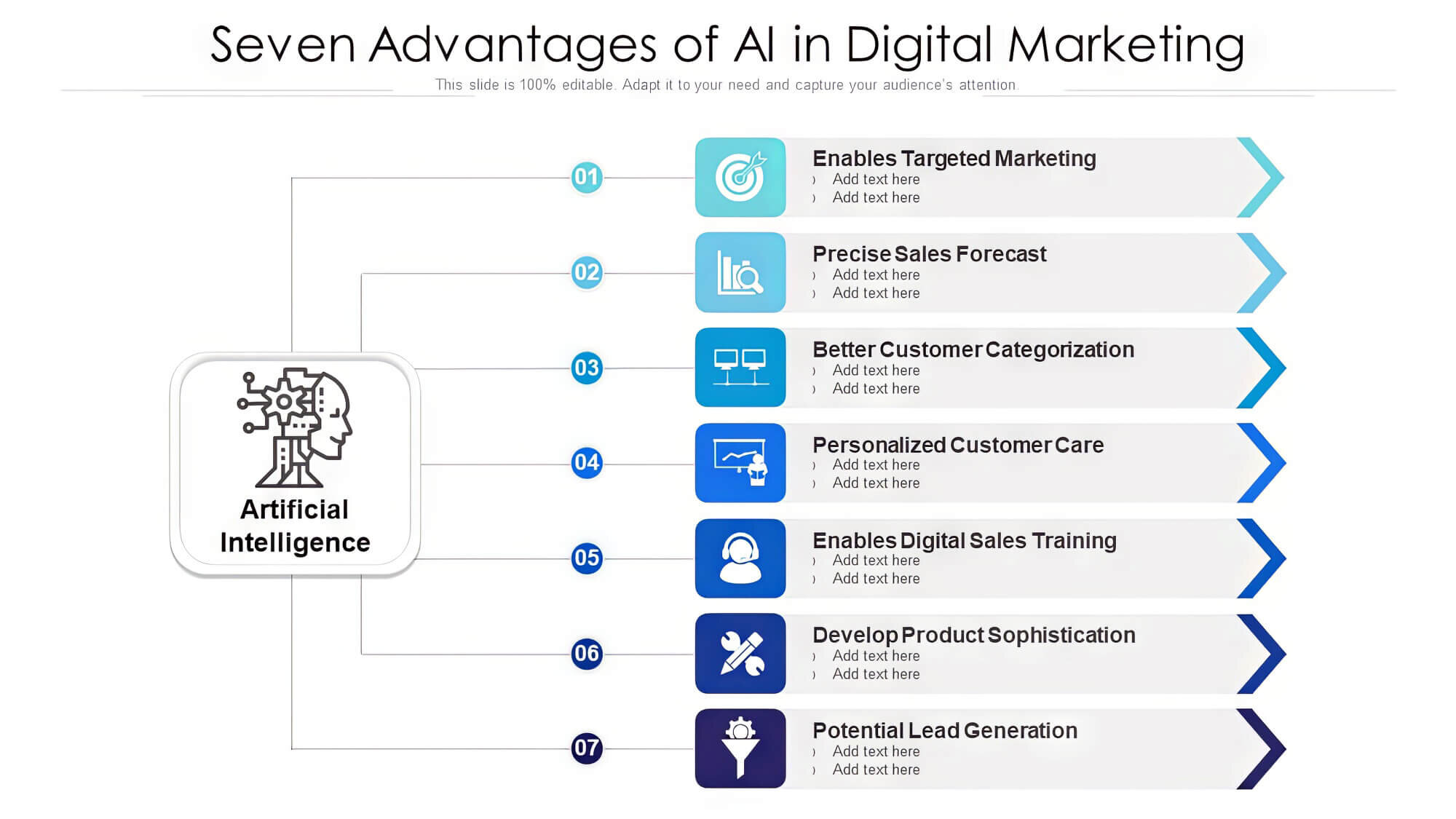
4. MarketMuse
MarketMuse is among the most popular tools for automating web pages and digital marketing tools for creating high-quality content. It is used by businesses that need to create highly optimised long-form content like sales copies, articles, landing pages and emails.
The marketing tool works by conducting in-depth research on the topic on which content has to be created. It can help create a draught, delivering content that resonates as if written by a person, including a content brief with key performance indicators (KPIs).
5. Acrolinx
Another powerful tool that digital marketers use to create high-quality content is Acrolinx. Large companies like Amazon and Google use it to ensure their content fits their marketing strategy and optimises various features.
This marketing automation software allows you to adjust grammar, tone, and even specific words, leading to more effective advertising and email marketing campaigns.
AI In Digital Marketing Vs. Traditional Marketing
Artificial Intelligence has transformed digital marketing in many ways, making it more effective. It has also created an even greater distinction between digital and traditional marketing. However, AI can be used for similar purposes in both traditional and digital marketing.
1. Better Understanding Of Customers
Both traditional marketing and digital marketing require customer data to make important decisions. Traditional marketing methods use direct mail, handouts, and printed ads to attract customers. Understanding what the target customers are looking for is important for creating such ads and handouts.
Traditional data collection methods generally include surveys, interviews, and information from books and related articles. AI tools make it possible to create more effective surveys while covering a larger demographic. The data collected can also be analysed more easily and quickly, thus helping businesses make quicker decisions.
In digital marketing, data is collected through search engines like Google and social platforms like Facebook. Artificial Intelligence makes extracting the required data from such platforms easy, with powerful algorithms created explicitly.
2. Resource Conservation
AI offers an effective solution for helping a business identify patterns and save resources in various ways. Whether a business utilises traditional or digital marketing, it tries to accomplish its objectives most efficiently. Thus, it will minimise resource use as far as possible to get the desired results.
In traditional marketing, AI tools can help identify trends and analyse customer habits. Businesses can adjust their marketing strategy to focus only on areas with higher chances of success, which helps prevent the waste of resources and time.
AI works similarly regarding resource conservation in marketing but has a much larger scope. In this case, it can even be used to create good content without needing as much time and resources.
Additionally, it can help identify areas where resources are being wasted and help eliminate such wastage to get maximum returns. AI in marketing for small businesses and startups can be extremely useful.
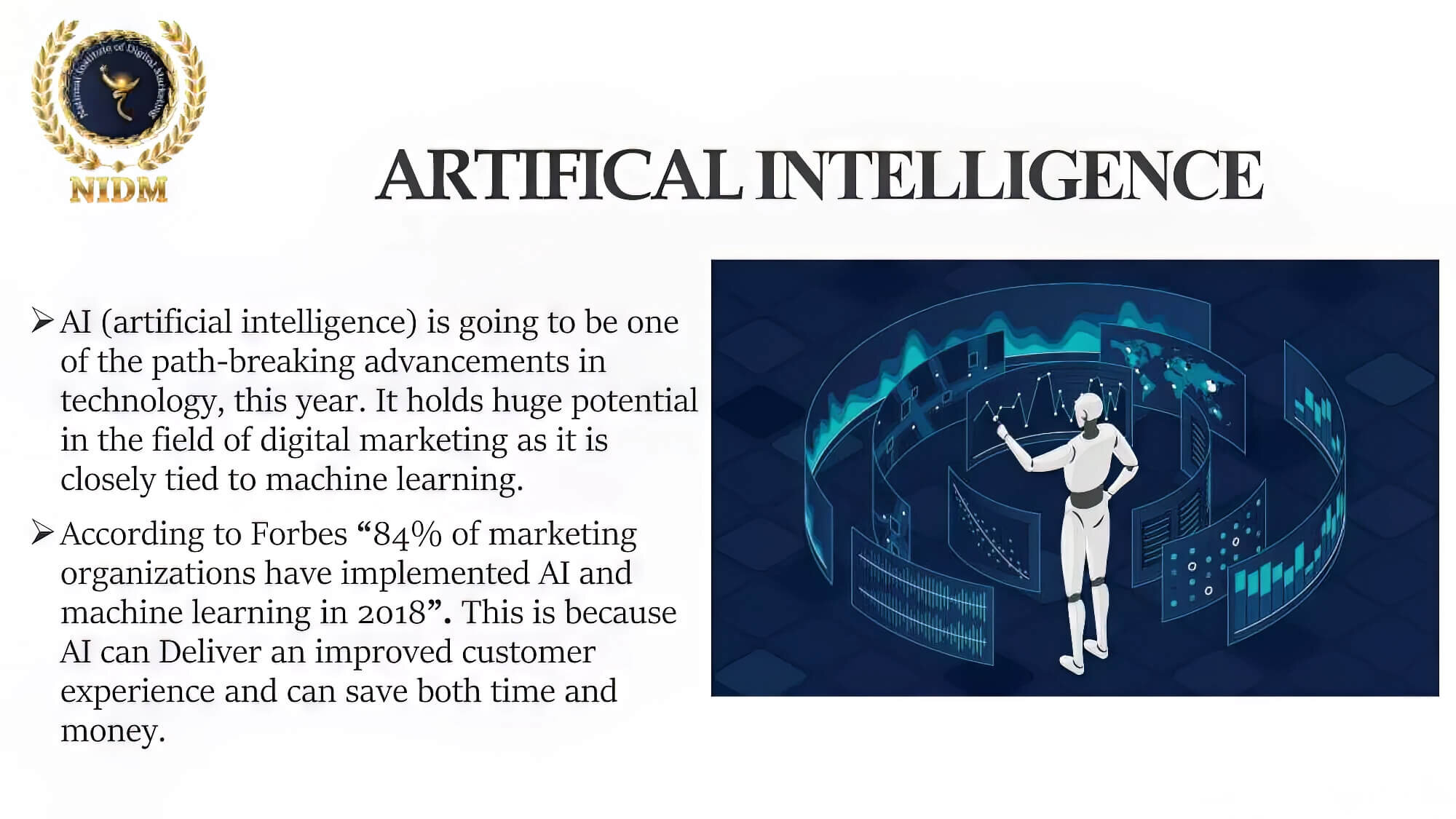
3. Better Advertising
advertising is a crucial step in both traditional and digital marketing campaigns. In the case of traditional marketing, With data analytics, AI can be integrated with electronic billboards to display selected ads to customers at the most appropriate time.
In digital marketing, artificial Intelligence can be integrated with various interactive tools, such as audio and video, to make them more engaging and attractive. It can even be used for B2B digital marketing.
4. Content Creation
Successful businesses create engaging content for their target audience. With AI, both traditional and digital approaches can identify topics that captivate customers. It aids in research and data collection, elevating content creation.
Artificial Intelligence can also ensure that the right type of language is used to communicate with clients and customers.
AI In Digital Strategies — Challenges
While AI can undoubtedly be very useful for all types of businesses engaged in digital campaigns, it also comes with a few challenges.
1. Requires Considerable Investment
AI requires a huge amount of investment, at least initially, as a relatively new technology. While huge businesses can afford such investments, smaller ones cannot to create relevant content. That is one of the biggest challenges when using AI for online startup marketing.
Additionally, like most technological tools, it requires regular updates and maintenance. Such investments are necessary to prevent data loss in real time. In the long run, artificial intelligence in digital marketing can help save resources, especially those allocated for repetitive tasks.
2. Frequently Changing Trends
Many businesses use machine learning and AI to develop data-driven marketing message strategies and campaigns. However, they do not consider the rapidly changing trends in the realm of AI. With newer technologies, like AI, come newer challenges; the faster technology evolves, the more quickly new challenges appear.
This makes their implemented campaigns ineffective when trends change in a few months. That is why it is important for those using AI in marketing to consider future developments when developing marketing campaigns and strategies.
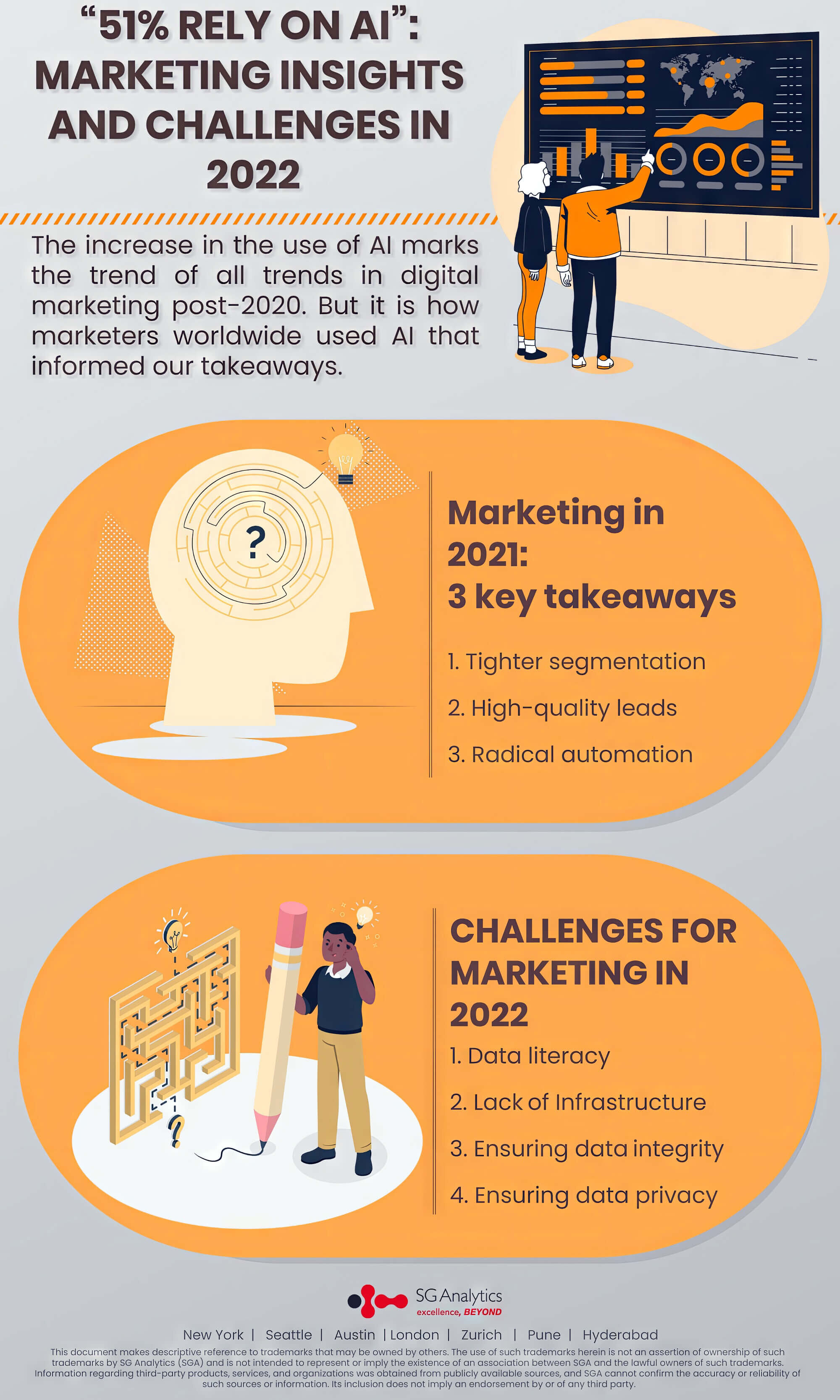
3. Regulations And Privacy
As AI becomes more popular for data collection, more people are concerned about privacy. AI is much more in-depth and powerful than manual or traditional data-gathering methods. It can discover each crucial aspect of the target customer to improve their marketing strategy.
That is why regulations are being implemented to restrict the use of Artificial Intelligence and why businesses are not allowed to use such tools in many areas.
4. Lack Of Good Quality Data
Data quality is a major challenge for beginners when using AI for digital marketing. Various artificial intelligence technologies are trained using good-quality data, but specific types of data are required for digital marketing purposes.
AI-generated content cannot provide the desired results if the business does not have such data. That is why companies spend billions of dollars on data collection, which may be challenging for new businesses.
AI In Online Marketing — Statistics
Businesses are adopting Artificial Intelligence across all sectors of the economy with great results. Some important statistics show how AI is becoming increasingly popular in digital marketing.
49% of leading businesses rely on AI to help them stand out from the competition regarding customer interaction. Similarly, of the businesses involved in e-commerce, 51% use AI-powered tools to provide their customers with a better experience.
However, artificial intelligence is even used for B2B marketing, and 64% of B2B marketers say it has been a technology that has evolved rapidly from its origins in the past for marketing purposes.
The Future Of AI In Digital Marketing
While AI has been one of the most significant technological developments in recent years, it is still nascent. Just as many businesses are adopting AI-powered tools for digital marketing, others still have concerns regarding what the technology has in store for the future.
A major concern is whether artificial Intelligence will avoid mistakes and will completely replace marketers in the future. While such tools can help automate many tasks marketers perform, the article indicates that the technology still has a long way to go before it can completely replace marketers.
On a positive note, it will help make digital marketing more targeted and accurate by helping optimise campaigns with machine learning. Businesses can expect better results through faster search engine optimisation and better content marketing.
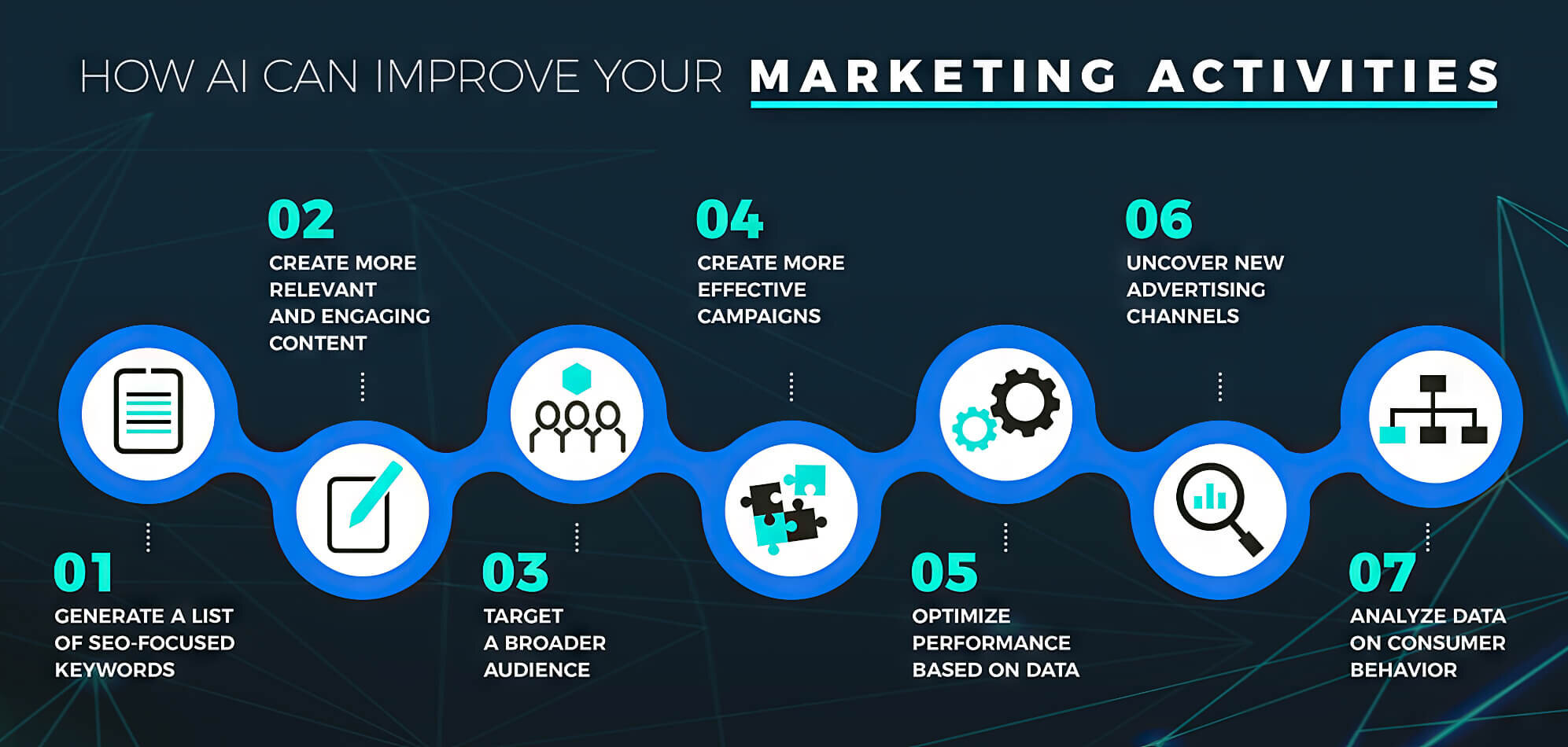
AI In Digital Strategies — Ethics
The power of AI is unparalleled in any sphere where it is used, but especially in online marketing. This leads to the question: What are the ethical implications of using such technologies?
As mentioned before, people are becoming increasingly concerned about how AI is used to collect data for marketing purposes. Such concerns are valid when businesses do not provide information about how they intend to use such information.
Additionally, being such a powerful technology, AI can be used to spread incorrect or misleading information. AI-based platforms learn from existing data, exposing them to false information can lead to severe problems.
Adhering to regulations to safeguard customers’ interests is the only way to prevent the misuse of AI technologies.
AI In Online Marketing — Success Stories
When used responsibly, AI can help a business become highly successful, and here are some examples that showcase that.
1. Coca-Cola
Coca-Cola is a brand that has been able to utilise AI effectively for analysing customer data, allowing it to offer personalised customer experiences to customers. The most famous example is its Share A Coke campaign, in which artificial Intelligence AI was used to create personalised labels.
2. Netflix
Netflix, the well-known streaming giant, showcases how AI boosts customer experience. It offers viewing recommendations using AI algorithms based on your watching history, delivering a personalised experience that’s a big hit with users.
Using AI in Digital Marketing
Artificial Intelligence is the most powerful factor currently transforming digital marketing efforts and the landscape. It is immensely powerful and has the potential to help businesses achieve their goals in a shorter span of time than ever before.
However, as with any technology, a few challenges and concerns must be addressed when implementing it. Most important among these are the ethical concerns, as the technology has enormous potential to be misused.
But proper regulations can help provide customers with a fantastic experience and businesses with higher returns.

